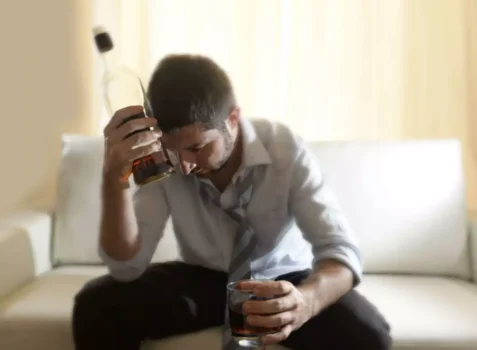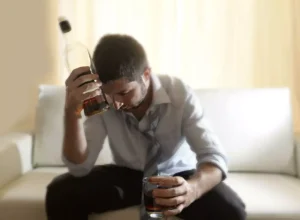
Physical relapse, on the other hand, includes experiencing withdrawal symptoms from the absence of drugs and alcohol. In either case, understanding your triggers forms a significant part of a successful recovery journey. Relapse triggers are events, situations, or emotions that can lead to a strong desire to seek out drugs and alcohol again, potentially resulting in alcohol abuse. These addiction relapse triggers can vary from person to person and types of relapse triggers can be incredibly powerful, leading to an increased risk of addiction relapse. A person’s support system may also play an important role in recovery and the avoidance of relapse.

Addiction Triggers And How To Manage Them
- Research shows that those who forgive themselves for backsliding into old behavior perform better in the future.
- Addiction is a chronic brain disease with a relapse rate similar to that of other chronic conditions like diabetes.
- Instead, a relapse signifies that additional and/or a different form of treatment is necessary.
- A variety of underlying mental illnesses like depression and anxiety are closely related to addiction and can result in a person experiencing more triggers or more powerful ones.
- Mindfulness training, for example, can modify the neural mechanisms of craving and open pathways for executive control over them.
- When a person in recovery is romanticizing their past use of a drug, they are often simply thinking of the early stages – the consumption of the drug.
- One of the challenges of therapy is to help clients practice telling the truth and practice admitting when they have misspoken and quickly correcting it.
Sticking with treatment for the entire length of the program is important, too. Issues in relationships, such as conflicts, broken connections, or lack of support, have a significant impact on emotional well-being. The absence of a robust support system further heightens the susceptibility to relapse.
Get Professional Help
One important study examined the effect of visual triggers in people who were former users of cocaine. Researchers showed the participants photos of cocaine and related situations and found that the images resulted in a subconscious emotional response in the brain. The researchers observed a rapid activation of the pathways related to drug cravings.
Preventing a Drug Relapse

The information we provide is not intended to be a substitute for professional medical advice, diagnosis or treatment. It should not be used in place of the advice of your physician or other qualified healthcare providers. If you’re not sure how to move through the recovery process, follow one of the relapse prevention plan models that are available.
Growth Stage

Friends, family, support groups, and therapists provide essential support, understanding, and guidance during challenges. The purpose of this rule is to remind individuals not to resist or sabotage change by insisting that they do recovery their way. A simple test of whether a person is bending the rules is if they look for loopholes in recovery. A warning sign is when clients ask for professional help and consistently ignore the advice.
Common External Relapse Triggers
- How individuals deal with setbacks plays a major role in recovery—and influences the very prospects for full recovery.
- High-risk situations include both internal experiences—positive memories of using or negative thoughts about the difficulty of resisting impulses—and situational cues.
- It is important to note that individuals in recovery have the power to resist and make choices that align with their recovery goals.
- These cues can vary from person to person; however, understanding them is essential for developing effective strategies to prevent relapse.
- The more an individual knows about their personal triggers and warning signs, the easier it will be for them and their loved ones to recognize any signs of a relapse.
The HALT acronym helps those in recovery keep an eye on some of the most basic human needs that can lead to or intensify triggers if not fulfilled. Being in any one of the HALT states reduces a person’s ability to cope with stress and increases impulsivity. Substance abuse relapse occurs when a person who has attempted to stop using a substance begins to use it again. Relapse can occur very soon after attempting sobriety, or after several years of sustained sobriety. Avoid going into situations alone where you are at high risk of relapse.
Becoming familiar with the signs of relapse can deter someone from using substances again. There is no standard definition because people experience setbacks in different ways. Each person’s recovery is unique, and not everyone will experience a relapse after treatment ends. Setbacks are a reality of recovery for many people because addiction is a lifelong condition that does not have a permanent cure. Learning about the recovery process, and the potential for setbacks, can help people set realistic expectations for addiction treatment and long-term healing. Contact a healthcare professional if you or someone you know suffers from a substance use disorder.

While it is more controlled and brief than a full relapse, a series of lapses can easily progress to relapse. Overconfidence in recovery can be dangerous, as it can lead to a false sense of security, making you more likely to take risks and eventually relapse. It’s important to remain conscious of the fact that addiction is a chronic illness, and relapse is always a possibility. Additionally, setting boundaries in relationships can help protect against overwhelming emotions that could lead to a relapse. When stress levels rise, the brain’s prefrontal cortex, responsible for cognitive control and stress regulation, is inhibited, making it harder to manage impulses and make informed decisions. Getting through the holidays while maintaining recovery, especially for people newer to this life-changing process, is an accomplishment worthy of celebration in its own right.
Prolonged stress during childhood dysregulates the normal stress response and can lastingly impair emotion regulation and cognitive development. What is more, it can alter the sensitivity of the stress response system so that it overresponds to low levels of threat, making people feel easily overwhelmed by life’s normal difficulties. Research shows a strong link between ACEs and opioid drug abuse as well as alcoholism. Among the most important coping skills needed are strategies of distraction that can be quickly engaged when cravings occur. Mindfulness training, for example, can modify the neural mechanisms of craving and open pathways for executive control over them.
Common Relapse Triggers and How to Avoid Them
Friends and family may not understand the consequences of negative behaviors toward people in recovery. These behaviors can make the individuals feel alienated and push them toward substance use. After a period of poor self-care, someone in recovery will likely experience some of the mental signs of relapse. They may begin to feel discontent with their progress and restless in their disintegrating routine.